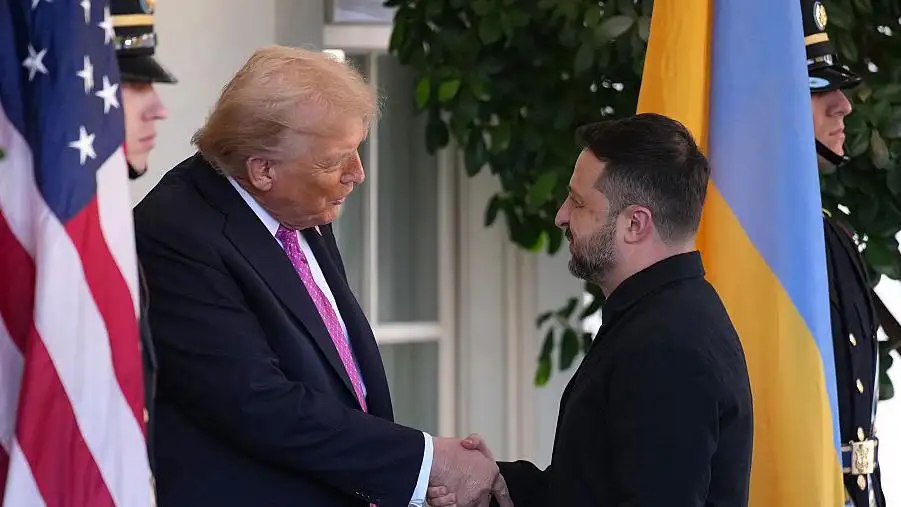The Trump-Zelensky meeting in Washington, which lasted more than two hours, was reportedly tense and emotional. Trump once again used harsh language, perhaps to throw Zelensky off his feet again and to cover up his new curtsies to the Kremlin under the guise of another show. Zelensky, however, clearly learned from the previous provocation.
In any case, Trump emphasized during the talks with him at the White House that the United States also needs these missiles and that “diplomacy is now a priority,” and that he hopes that this way it will be possible to achieve peace. This is even though just days ago, Trump described the transfer of the Tomahawks to Ukraine through mediation as an almost done deal and did not remember needing them.
On the eve of the meeting, when Zelensky was already in Washington, Trump had a two-hour phone conversation with Vladimir Putin, which Moscow initiated. The Kremlin had expressed concern about the possible supply of Tomahawks even before that phone call. Putin had warned that such a step could “cause irreparable damage” to Russian-American relations. And the Deputy Chairman of the Russian Security Council, Dmitry Medvedev, had threatened in his post on social media that such a step would harm Trump himself.
Tactical or strategic retreat?
It is now apparent that Trump retreated as a result of that phone call. The question is, is it a tactical or strategic retreat? The tactical retreat may be due to the expectation of the Russian president to hold constructive negotiations through diplomatic channels at the upcoming Trump-Putin meeting in Budapest. In other words, Trump may be making a last-ditch attempt to use the possibility of transferring Tomahawk cruise missiles to Ukraine as a means of blackmailing the Kremlin, given Moscow’s apparent nervousness about the prospect. After meeting with Trump at the White House, Ukrainian President Zelensky said that Trump had not said “yes” to the transfer of the missiles, but he had not said “no” either. Such a position suggests that Trump is keeping the “window” open for transferring the missiles to Kiev and may play on it during his meeting with Putin in the Hungarian capital.
On the other hand, however, Trump’s public rhetoric suggests more that he is abandoning the idea of transferring the missiles to Ukraine altogether. Trump’s messages are more likely to reassure Moscow than to provide the basis for serious negotiations in Budapest. If so, then once again the Kremlin has managed to adapt Trump to its doctrinal interests, neutralize another significant obstacle to the implementation of its plans in Ukraine, and avoid direct negotiations with Ukraine.
What could have influenced such a turning point in Trump’s decision to transfer the Tomahawks to Ukraine, when the latter had begun to indirectly threaten Russia with full support for Ukraine in the war, and speak badly about the Russian leader? Maybe Putin threatened to use the nuclear arsenal in the event of such supplies, as he does at all crucial moments. Or did he manage to make another attractive economic offer to Trump, which the US president did not want to ignore, and for the sake of which the latter now wants to play another act of sacrificing Ukraine’s interests? In this regard, his statement after a telephone conversation with Putin that they had discussed the development of bilateral economic relations after the Ukrainian war was noteworthy.
Budapest: a point of no return
In essence, Budapest is becoming a pivotal point, perhaps even a point of no return, not so much for the Ukrainian crisis and the fate of the Tomahawks, but for Trump himself. In Budapest, it will become clear whether Trump has given in purely to impose peace through diplomatic pressure, or has he been afraid of possible threats from Russia, making separate deals and thus sounding the whistle for the continuation of the war. The question at stake is his authority as the most powerful president in the world. If, after that, against the background of the absolute inaction of the United States, Russia will again use various maneuvers to avoid ending the war and starting negotiations, then it will turn out that the pyramid of dividends that Trump has built during this time by resolving several conflicts in the world is built on quicksand.
Gor Abrahamyan


















